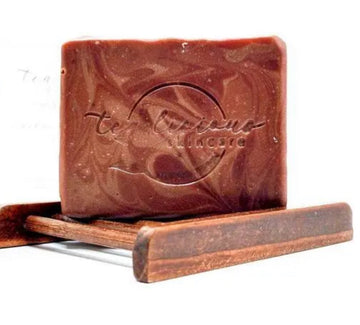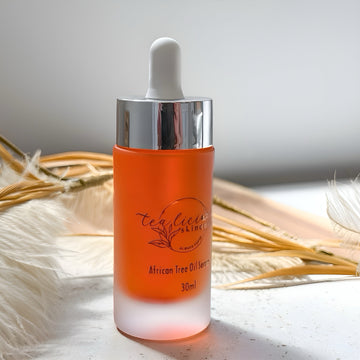Here’s the tea on why hydration is the unsung hero of exfoliation. Our skin’s health hinges on water. Not just any water, but the kind that keeps our skin plump, happy, and shedding dead cells like it was meant to. Let’s dive into this topic with a sprinkle of science, and a whole dedication to ethical skincare.
Why Hydration and Exfoliation Matter
Ever wonder why your skin feels dry, no matter what you do? As a formulator obsessed with ecofriendly skincare, I’ve learned that exfoliation—shedding those dead skin cells—relies on hydration. Without enough water, your skin’s not happy. Hydration keeps the skin’s surface (the stratum corneum) soft and flexible, making it easier for dead cells to be exfoliated. Think of it like soaking a crusty dish before scrubbing—it’s just easier when it’s wet!
Exfoliation isn’t just about sloughing off the old to reveal the new; it’s a natural process called desquamation, where dead cells peel away to keep your skin smooth and radiant. But here’s the catch: this process needs water to work its magic. Too dry? The whole system stalls, and this can be caused by using chemical laden skincare products instead of turning to nature. Even body soap. Let’s unpack the science connect it to why I’m so passionate about taking a beauty without compromise stance.
Meet the Stratum Corneum: Your Skin’s VIP Layer
The stratum corneum is the outermost layer of your skin—think of it as the bouncer at the club. It’s made of dead skin cells (corneocytes) stacked like tiny bricks, held together by a lipid “mortar” and protein bonds called corneodesmosomes. These corneocytes are the MVPs of protection, shielding you from environmental enemies like pollution and UV rays. But when it’s time for them to leave, they need a way to exit.
I remember my first aha moment as a formulator, and realizing those dead cells don’t just fall off—they’re glued tight. Corneodesmosomes are like the Velcro of your skin, linking corneocytes with proteins like desmoglein and desmocollin. These bonds are tough, ensuring the stratum corneum stays intact as a barrier. But when it’s time to exfoliate, those bonds need to break, and that’s where our next star player comes in: proteases.
Proteases: The Tiny Scissors of Exfoliation
Proteases are enzymes—think of them as microscopic scissors snipping away at corneodesmosomes to free dead cells. I like to imagine them as little helpers in my skincare lab, diligently cutting the ties that bind. These enzymes digest the protein links, allowing corneocytes to shed naturally. It’s a beautiful dance, and I’m all about supporting it with environment-friendly ingredients.
Without these enzymes, we’d be stuck with a buildup of dead cells, leading to a lackluster skin. Proteases are nature’s way of keeping things fresh, but they’re picky—they need the right conditions to work, and that’s where water steals the spotlight.
Water: The Lifeblood of Protease Power
Proteases are total divas when it comes to water. They can’t function properly if the skin’s water content dips too low. Studies suggest that the stratum corneum needs at least 10-20% water content for proteases to do their job (think of it like a Goldilocks zone—not too dry, not too soggy). Below this, the enzymes slow down, and desquamation stalls, leaving dead cells clinging like uninvited guests.
I’ve had my share of dry-skin days, especially after long flights (18-hour ones, ugh!). My skin felt like sandpaper, and no amount of moisturizer helped. That’s when I connected the dots: hydration is about fueling the enzymes that drive exfoliation. Water keeps the stratum corneum soft, making it easier for proteases to access and break down corneodesmosomes. It’s like giving those scissors a well-oiled edge.
Why Dry Skin Sabotages Exfoliation
When the stratum corneum is parched, it hardens, and corneodesmosomes become stubborn, resisting protease action. The result? A buildup of dead cells that makes your skin look dull and feel rough. I’ve seen this in my own journey, growing up in rural Africa, where dry air sometimes left my skin begging for moisture. That’s why I’m so passionate about ecofriendly skincare that hydrates deeply.
As a formulator, I know hydration isn’t just slapping on a moisturizing cream. It’s about delivering water and locking it in with ingredients like glycerin, hyaluronic acid, or my favorite, tea-based extracts. These humectants pull water into the skin, creating the perfect stage for proteases to perform. Without this, even the best exfoliants can’t fully do the job.
The Science of Corneodesmosomes: A Deeper Dive
Let’s nerd out for a sec—corneodesmosomes are fascinating! These protein complexes are like tiny bridges between corneocytes, made of desmosomal proteins that interlock tightly. They’re designed to hold strong, but as cells move up through the stratum corneum, proteases start nibbling away.
I love sharing this with my Tea-Licious Skincare community because it’s empowering to understand your skin. When I formulate, I keep this balance in mind, using gentle, chemical free products that respect the skin’s natural pH. Over-exfoliating or using harsh scrubs can mess with this delicate dance, stripping lipids and water, which slows proteases down. That’s why I’m all about beauty without compromise—effective but kind.
Hydration Hacks for Happy Exfoliation
So, how do we keep the water flowing for optimal exfoliation? Here are my go-to tips:
Hydrate from Within: Drink water like it’s your job! I keep a glass of herbal tea nearby while crafting small batches—it’s my ritual for skin and soul.
2. Use Humectants: Ingredients like glycerin or aloe vera draw water into the skin, keeping it plump for protease action.
3. Lock It In: Emollients like shea butter or jojoba oil seal in moisture, preventing water loss. Our handcrafted skincare blends these and many more for max hydration.
4. Gentle Exfoliation: Over-scrubbing is a no-no—it strips water and lipids. Our small-batch scrubs/masks are gentle, supporting natural desquamation without drama.
5. Avoid Harsh cleaners & Soaps: They can raise skin pH and dry you out, messing with proteases. Stick to pH-balanced, environment-friendly cleansers.
I’ve shared these hacks with countless clients, and the stories warm my heart. There’s nothing like seeing someone embrace their skin with confidence, knowing they’re using ethical skincare that works.
The Emotional Connection: Why This Matters
Skincare isn’t just science—it’s personal. Growing up in rural Africa, surrounded by nature, I learned to respect the earth and our bodies. When I formulate for Tea-Licious Skincare, I’m not just mixing ingredients; I’m creating moments of self-care. Dry, dull skin can make us feel less vibrant, but hydrated, exfoliated skin? It’s like a confidence boost in a jar.
I get it—life’s busy, and skin woes can feel overwhelming. That’s why we’re here, pouring our heart into small batches of handcrafted skincare. I want you to feel connected to your skin, to understand why hydration and exfoliation are a power duo. It’s not about perfection; it’s about nurturing yourself with ecofriendly skincare that’s kind to you and the planet.
The Bigger Picture: Ethical and Sustainable Skincare
As a formulator, I’m driven by a mission: beauty without compromise. Overprocessing ingredients or loading up on chemicals? Not my style. The skincare industry often cuts corners, but at Tea-Licious Skincare, we’re different. Our chemical free products are created with love, using minimally processed, environment-friendly ingredients. Hydration and exfoliation work best when we respect the skin’s natural processes, and that starts with ethical choices.
I’m also obsessed with small batch skincare because they let me control quality. No mass-produced nonsense—just pure, potent blends that support your skin’s hydration-exfoliation balance. Plus, our tea-based formulas (yep, tea skincare!) add antioxidants and soothing effects, making every application a mini spa moment.
A Fun Experiment to Try
Want to see this in action? Try this at home: for one week, focus on hydration. Use a gentle, pH-balanced cleanser, layer on a humectant-rich serum (like a dragon fruit or pomegranate serum), and seal with a natural moisturizer. Then, lightly exfoliate once or twice a week. Notice how your skin feels softer, smoother, and glowier. That’s hydration and proteases teaming up for your personal glow-up!
Wrapping It Up with Love
Hydration and exfoliation are like peanut butter and jelly—better together. Water keeps the stratum corneum soft, powers proteases to snip corneodesmosomes, and ensures dead cells shed smoothly. As a formulator, I’m obsessed with making this process easy and happy with small batch skincare that’s kind to your skin and the earth.
To my natural skincare lovers, know this: your skin is unique, and it deserves love, not harsh chemicals. At Tea-Licious Skincare, we’re all about small batches, ethical skincare, and healthy results. So, grab some water (inside and out), embrace the power of hydration, and let’s keep that desquamation party going. Here’s to radiant skin and a happier you!
#SmallBatches #BeautyWithoutCompromise #EcofriendlySkincare #HandcraftedSkincare #EthicalSkincare #NaturalSkincareLovers #EnvironmentFriendly #ChemicalFreeProducts #TeaLiciousSkincare #TeaSkincare





